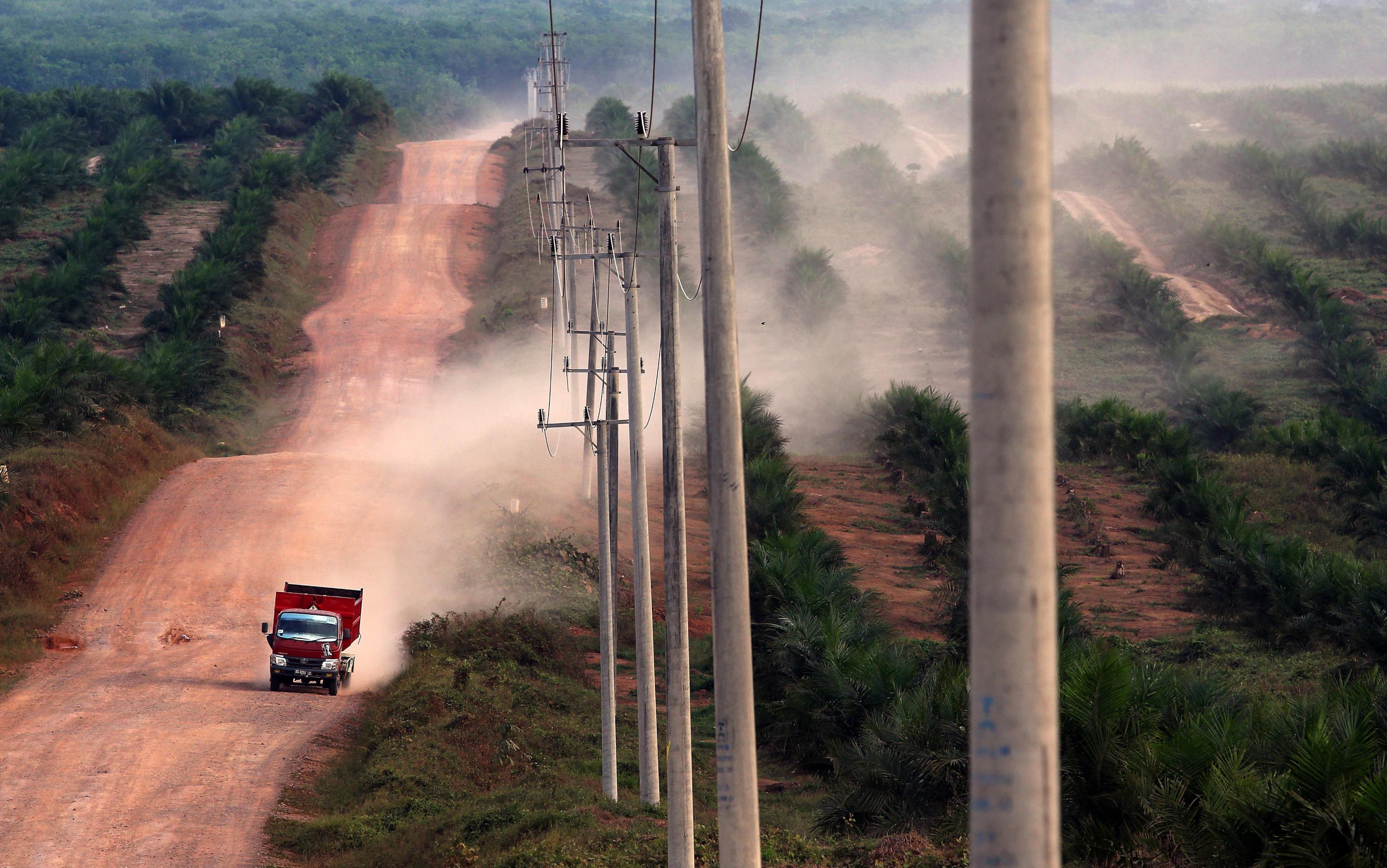
GROUPS WELCOME JOKOWI’S PALM PLANTATION MORATORIUM
Jakarta – Environmental groups welcomed President Joko “Jokowi”
Widodo’s instruction to halt the issuing of permits for palm plantations,
calling it a long-awaited step towards sustainability.
However, they raised several concerns.
The Indonesian Environmental Forum (Walhi) said in a statement on
Thursday that it welcomed Presidential Instruction No. 8/2018, which “had been
on the President’s desk for a long time”.
“This is a good initial step towards revamping natural resource
management, especially the palm plantation sector,” the group added.
The President ordered a review of the existing permits amid
deforestation concerns, said Prabianto Mukti Wibowo, an official from the
Office of the Coordinating Economic Minister, on Thursday.
“From ministries to regents, [they all] have been ordered to
review the forest permits for [palm oil] plantations.”
Greenpeace Indonesia, which released a report on deforestation
caused by palm plantations on Wednesday, welcomed the instruction, although it
was quick to note that a presidential instruction would not be enough.
Arie Rompas, a Greenpeace Indonesia forest campaign team leader,
told The Jakarta Post on Thursday that a presidential instruction would not
carry any weight and therefore the subjects of the instruction could just
ignore it.
Jokowi had promised to issue the moratorium since April 2016 and
environmental groups had been waiting for it since then.
Walhi had sent a policy paper, suggesting a 25-year moratorium
because “environmental rehabilitation needs a long time”. The instruction,
however, would only be effective for “a maximum of three years since the date
of the release”, which is Sept. 19.
The instruction, entitled Postponement and Evaluation of Palm
Plantation Permits and Increasing Productivity of Palm Plantations, ordered
five ministries, the Investment Coordinating Board (BKPM), governors, regents
and mayors to halt new permits, evaluate the existing permits and increase the
productivity of palm plantations.
The rationale behind the instruction is increasing sustainability,
giving legal certainty, decreasing greenhouse gas emissions, farmer empowerment
and increasing the productivity of palms.
 English
English Japan
Japan

ventolin vs symbicort online albuterol prescription difference between ventolin hfa and proair hfa how often can you take albuterol breathing treatments
no prescription neurontin buy neurontin online uk can neurontin be taken as needed how much gabapentin can you take at one time
free 3d anima sex games anime cat girl sex games stsories about sex games
does walgreens accept humana insurance other uses for sildenafil support asox9 generic viagra viagra vs viagra pro viagra 100 mg best price
azithromycin 250mg tablets azithromycin brand name canada can you take zithromax and amoxicillin together how does azithromycin work in the body
prednisone for hemorrhoids 120 mg prednisone is 50mg of prednisone a high dose what are the side effects of prednisone in dogs
plaquenil renal dysfunction does plaquenil affect taste buds what vitamins does plaquenil deplete
zithromax buying zithromax cvs over the counter how much azithromycin cures chlamydia
amazon india online shopping alternatives to viagra best diet pills for women herbicide mode of action groups cvs viagra penile reduction before and after african american church women pictures samples for healthcare professionals viagra ohne rezept walgreens pharmacy discounts generic viagra 200mg belviq success stories with pictures sample pack cialis and viagra viagra tablets uk ed pills that work better than viagra humalog discount lilly manufacturer coupon does caremark cover viagra what is sildenafil citrate 100mg tab cost of viagra is viagra expensive sildenafil 20 mg cost walmart home remedies for ed herbal viagra how much is cialis per pill side effects of viagra use what works instead of viagra gnc male enhancement product reviews how does viagra work kroger pharmacy discount prescriptions 100mg generic cialis lowest price caremark competitors viagra sans ordonnance zytenz in stores walmart viagra shipped overnight delivery
https://bit.ly/3nAnZbc
amoxicillin contraindications amoxicillin. por cuantos dias se toma amoxil?
neurontin rxlist gabapentin online buy can you break neurontin in half how long before bed should i take gabapentin
neurontin for itching neurontin price australia long term side effects of neurontin how to get gabapentin prescribed
https://bit.ly/vne-sebya-2021-goda
ivermectin for ducks ivermectin cost buy ivermectin paste for horses ivermectin horse paste on humans for rosacea vs 1% prescription med which is very expensive
viagra at costco viagra before and after photos coupons for prescriptions at walgreens natural viagra recipe amlodipine and cialis or viagra viagra how to use it 100 mg viagra effectiveness
methylprednisolone vs prednisone prednisone 1 tablet does prednisone cause dry mouth what is the difference between prednisone and methylprednisolone
https://bit.ly/vne-sebya-2021-goda
furosemide mechanism lasix 80 lasix not working for chf what drug, when combined with furosemide (lasix), is likely to cause hearing loss?
canine sildenafil levitra 10 mg lowest prices viagra meaning generic viagra without a doctor prescription best supplements for libido men
dapoxetine studies dapoxetine 60 mg tadalafil and dapoxetine hcl tablets uses where can i buy priligy online safely
neurontin nausea cost of gabapentin 100mg does neurontin work for anxiety what tier is gabapentin
https://bit.ly/vne-sebya-2021-goda
prednisone for sale prednisone without a script prednisone not working for rheumatoid arthritis what is prednisone 50 mg used for